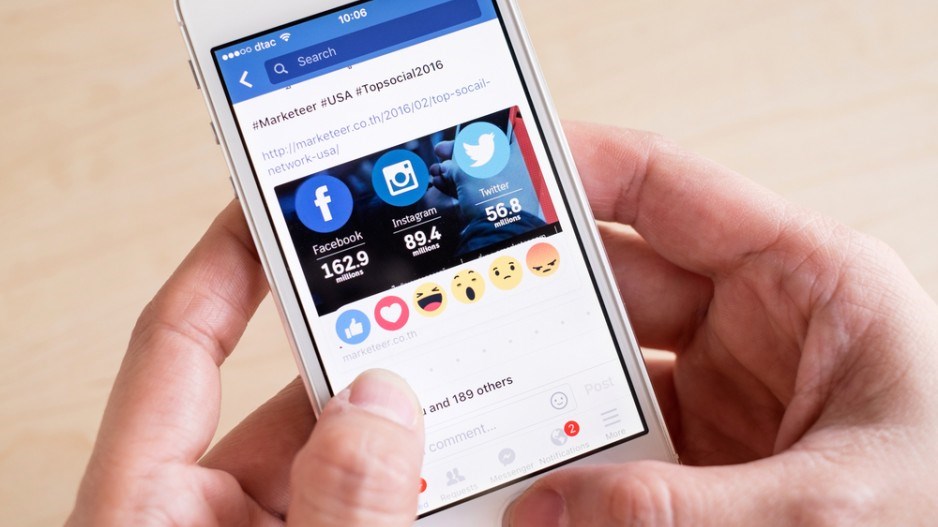In the latest Research Co. survey of Canadians, only 29% of respondents acknowledged that they rarely experience someone being rude or impolite when using social media.
In Canada, you are more likely to be harangued and insulted on Facebook, Twitter or Instagram than driving a car or using public transit.
The remarkable situation is that the targets of online animosity are clearly defined. Only 24% of women and 12% of Canadians aged 18 to 34 say they are rarely hassled on social media. Simply put, this means that three in four women and almost nine in 10 in the youngest adult age group cannot escape some degree of aggravation when using platforms that were supposedly designed to “facilitate the creation and sharing of information, ideas, career interests and other forms of expression.”
My personal experiences on social media are limited. I have never been on Facebook and I never will. I was introduced to Twitter by a colleague in 2011, who thought – and she continues to be right – that it would allow me to connect with a wider audience for my surveys and articles.
Many things have happened in the eight years I’ve used Twitter, in both my personal and professional lives. I made friends after replying to tweets. I also opted to ignore and mute other users.
Earlier this year, I took a detailed look at my historical tweets and decided that it was time to remove thousands of them from the world wide web.
I’ll be clear. These were not instances of pitiful comedic timing (such as the ubiquitous claim that “karma” is responsible when a person you dislike faces a problem) or careless grammar. Most of these tweets amounted to content from companies I am no longer associated with and/or led to broken links and error messages. Others were observations that were precise at a specific moment, but are not anymore and should not be regarded as irretrievable definitions of who I am and what I care about.
It is perfectly acceptable to no longer think a particular meal was “the best one ever” and to feel no need to explain in detail all others that may have topped it since. If your admiration for people you may have crossed paths with no longer exists, it makes no sense to keep old tweets that expressed a fleeting sense of appreciation.
As the municipal campaign was underway in the City of Vancouver last year, OneCity candidate for council Brandon Yan was criticized for deleting old tweets. At the time, I understood Yan’s position perfectly, even if one too many supposed “influencers” decried it.
A person should not be judged for opinions on fashion, music or social issues that were made years ago. But for some of the “purists” of social media, Yan’s actions were tantamount to having something to hide.
Yan’s example outlines a simple fact: our views on the world can change. What may have generated a chuckle in our youth can now easily become something offensive and hurtful. Our perceptions of people we knew can go through transformations as well.
Many times, it has been said that the profession of polling is about snapshots. In social media, our fondness for people, parties, politicians, even relatives, can also go through fluctuations. On a specific day, in a specific moment, a person felt compelled to issue a statement about a particular issue. Only a zealot would expect that statement to become the defining factor in a social media user’s life. There can be no purity test for social media use, especially if the loudest proponents of it hide behind fake names or pictures of other individuals.
Unfortunately, everything indicates that the current state of affairs on social media will get worse before it gets better. Trolling is still rampant on Twitter. We are warned about offensive content in replies to our tweets. There is no editor to remind users to be more considerate or look at different angles: only a window where any and all content can be placed, with little or no care.
The saddest part is that women and the youngest adults are starting to become used to the new “normal” on Canada’s social media landscape: shaming, finger-pointing, verbal abuse and threats. In any other facet of life, this behaviour would be extremely abnormal.
Mario Canseco is president of Research Co.




